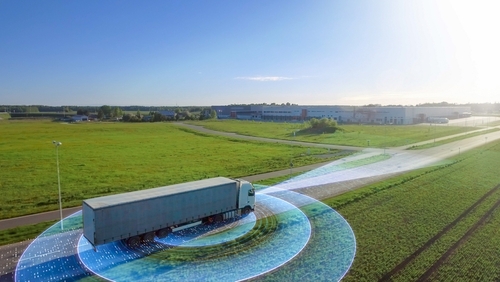
Pittsburgh-based Locomation, a leading provider of autonomous trucking technology solutions, announced Tuesday it had entered an eight-year agreement with Stevens Trucking Company in El Reno, Okla., to provide autonomous trucking systems.
Using Locomation’s proprietary planning and optimization system, Stevens will restructure its operation using a relay model to run its trucks 20+ hours daily. If the technology development effort is successful, the company will deploy up to 500 trucks equipped with Locomation’s Autonomous Relay Convoy (ARC) systems on six separate Autonomous Relay Network lane segments over five years. Locomation estimates the total freight transportation value of autonomous trucking in six-lane segments at more than $9 billion annually.
“We are delighted to partner with Locomation to offer autonomous trucking services to our customers,” said Kenney Stevens, CEO of Stevens Trucking. “We chose Locomation because we’re convinced they are bringing to market the safest and most viable turnkey model to enable us to deploy autonomous technology in the near term. For Stevens, this is an incredible opportunity to establish a strong early mover presence in the lanes we’ve chosen to launch in and enable us to double our market share.”
Stevens Trucking said it plans to double its market share using Locomation’s freight optimization and autonomous vehicle technology, reducing empty miles by up to 50 percent and improving fuel efficiency by more than 20 percent.
Locomation’s ARC system is a human-led convoy of two trucks that are tethered electronically. The Human-Guided Autonomy solution allows one driver to operate the lead truck while a second driver rests in the following truck. This system will enable carriers to safely operate two trucks for 20-22 hours per day and still comply with the U.S. Department of Transportation’s Hours-of-Service regulations. Locomation’s solution promised to help carriers deliver twice the cargo, twice as fast, covering twice the distance, the company said.